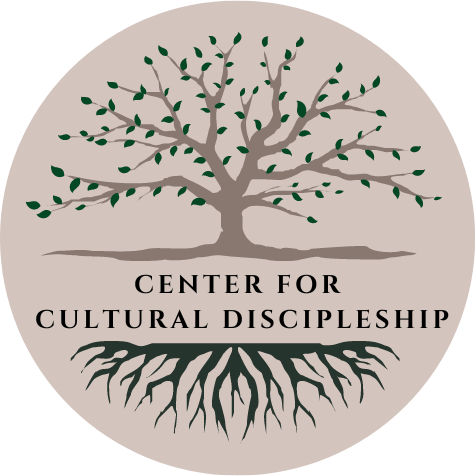“So, what’s the sacred cow here?” This was one of my last questions as I sat in a job interview. I was offered an opportunity to serve on a church staff in discipleship and worldview training, a position that would eventually last ten years. I was asked to be an agent of change, build new things, and assess current conditions. Therefore, the question of the sacred cow needed to be asked. What barriers were I going to face as I stepped into my new role? What was unquestionable? The response was quick. “We don’t have any.” I should have known better.
Of course, there would be sacred cows. They were just undiscovered. We don’t know what is unquestionable until we question it. We don’t know what is disruptive until someone perceives us as disruptive. We don’t always know there is darkness until light shows up.
As followers of Jesus, we are in a culture with two primary sacred cows. If you are reading this, chances are you already know them and wonder how to kill them. Why do they need to die? Because they are a direct barrier to belief in and walk with Christ. By knowing the sacred cows, we can see them coming. We can offer ourselves as delightful invitations to the Gospel, even when we live as instruments of disruption. Yes, we are called to be delightful and disruptive. When eyeball to eyeball with a sacred cow, we must know how to slay the bovine and awaken a new hope.
Two Sacred Cows
I am as I think myself to be.
In his great work, Strange New World, Carl Trueman takes his reader on a journey to understanding this cultural cardinal rule. He charts the rise of a new understanding of human identity.
“A society’s understanding of the notion of “self” has broad implications for the cultural, moral, and political spheres. The modern notion of self, which can be called “expressive individualism,” to use Robert Bellah’s term, lies at the heart of current cultural conflicts, including abortion, pornography, the ethics of life and death, radical racial politics, freedom of speech, and freedom of religion. Expressive individualism holds that human beings are defined by their individual psychological core, and that the purpose of life is allowing that core to find social expression in relationships. Anything that challenges it is deemed oppressive.” – Carl Trueman
In short, I am as I think myself to be.
This is a radical departure from the way older generations previously thought of themselves. Historically Christians have grounded human identity in creation. We exist as created beings. We bear God’s image. We are deeply beautiful. We are deeply broken and sinful. Desires and longings did not tell us who we were. Our Creator revealed to us who we were. God made us, so He was in the best position to tell us who we were, how we flourished, and the purpose of our existence.
No, desires and longings do not tell us who we are. Who we are determined how we responded to our desires and longings.
Culturally, we have turned a rather large corner. No one outside of the individual is trustworthy enough or informed enough to shepherd our understanding of who we are. Only individual “lived experience” and individual “authentic” internal reflection can do the job. God is no longer in the Story. There is no creation. No shared storyline. No shared path forward together.
Is it any wonder we have a culture plagued with isolation, grief, confusion, and anger? If we believe that to be fully human, fully alive, and flourishing, we must be able to express all our individual self-constructed desires, we inevitably slam into other self-constructed identities. If the very purpose of life is full identity expression, what happens when one person’s purpose bumps into another person’s purpose and there is no third party to break the tie? What happens when chaotic confusion throws young boys and girls into states of uncertainty? What happens when parents, teachers, doctors, and pastors are told that the only way to guide the next generation is to affirm self-constructed identities? What happens when we abandon our children in their most vulnerable moments, assuring them they alone hold the answers to their deep turmoil? Only they know who they are. There is no outside help. Do we simply tell them to look inside, listen to the competing, shifting, and self-destructive voices and attempt to make sense of the chaos? Is this the best we can offer?
If you love me, you will affirm what I want you to affirm.
If I am as I think myself to be, then to challenge, boundary, or prevent my individual expression of personalized identity is oppressive. It is tantamount to a human rights violation. This is not mere disagreement. To push against my self-constructed notion is a direct attack on my very existence. Therefore, cultural love becomes unconditional affirmation. This kind of love has no room for disagreement. Disagreement equals hate and must be canceled, silenced, punished, and driven from the room.
Is it any wonder we are losing teachers, doctors, and clergy at alarming rates. Those who were once trusted experts to help us learn what we did not know, practice what we did not know we needed, and live in a way that denied our darker inclinations, have now become the enemy. Expertise and training have been cast into the rubbish bin. Teachers have no authority in a world without authorities. Nurses have no expertise in a world where the individual is the only recognizable expert for the self. Pastors have no wisdom in a world that has replaced biblical authority with self-authenticity.
How do we obey the words of Jesus when the very definition of love has become so warped?
And you shall love the Lord your God with all your heart and with all your soul and with all your mind and with all your strength.’ The second is this: ‘You shall love your neighbor as yourself.’ There is no other commandment greater than these.”–Mark 12:30-31
Here are two things to remember:
- First, we must love as Jesus loved, with both grace and truth. Jesus told us to love, not to be understood as loving. This does not mean that we are unconcerned with our posture, demeanor, or presentation to others. We seek to develop confident conviction with uncommon compassion. However, we remember that Jesus’ truth and grace kind of love earned him scorn and ridicule. We are promised it will do the same for us. If we assess our ability to love others with the dominant cultural understanding, not only will we fail to truly love, but we will also become complicit in the self-destruction of those around us. We must look to Christ alone.
We must also equip our kids to love well in a world that radically misunderstands biblical love. If we don’t, our kids will feel the constant confusion of the command to love their neighbor while feeling secretly tyrannical for upholding the Scripture. If the next generation remains confused, they will either abandon the command to love or abandon God’s goodness. The biblical understanding of goodness will become replaced with an affirming posture of non-disagreement in the name of relational generosity. In the end, it will be neither good, nor generous, nor loving.
- In a moment of disagreement, show the invitational nature of truth. Since truth is loving, it is also invitational. We must learn to posture ourselves and proclaim truth in an invitational manner. One of my most used phrases in disagreement is, “I think God offers more to us.” Ultimately, the most unloving place to take someone is inside themselves. Truth is invitational because it reflects the reality of our creation. Truth is most loving because it embraces the only life-giving way forward. Encouraging self-constructed identities breeds self-harm.
So, don’t shy away from conversations about love, identity, and agreement. Just remember, God gives us more than our misguided, confusing, inner desires. He gives us the reason for our existence, the conditions of our flourishing, and the grandeur of our purpose. And that is a glorious invitation indeed.
Want to learn more? Check out Carl Trueman’s book here.
Subscribe. Share. Ask a question at https://culturaldiscipleship.org/ask-us/.

